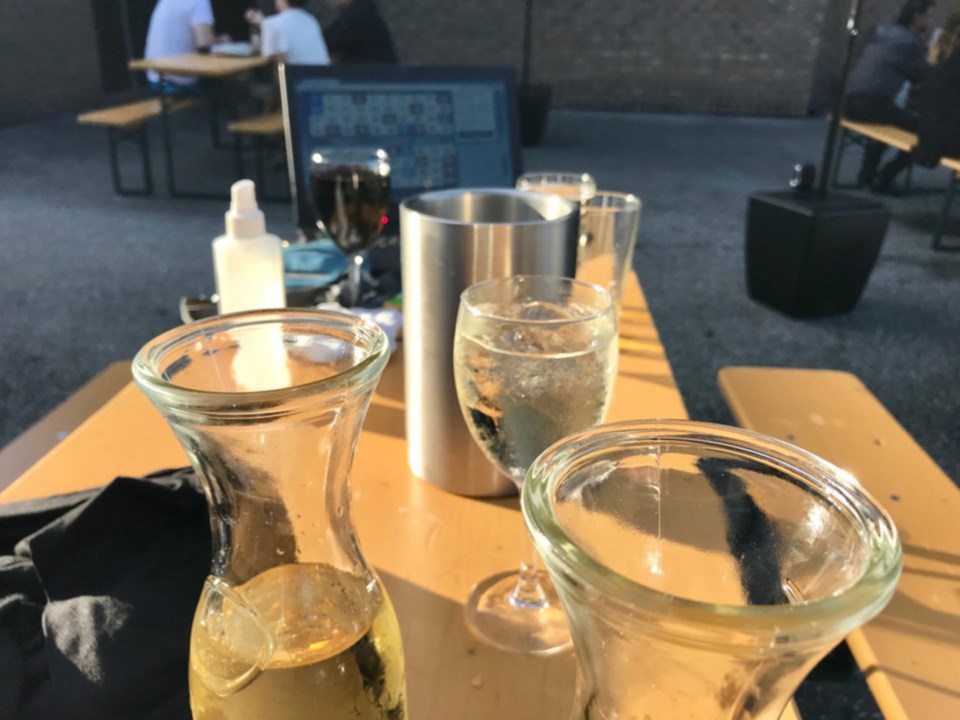The last thing local restaurants and cafes need right now is more “red tape” surrounding how and when they can operate patios, decided Delta council at its March 7th meeting.
And so, the staff-proposed patio program changes will be put on hold for now.
Had the changes been adopted, the longer-term, pandemic-indifferent framework for patios would have come into effect on April 1 and moved away from the COVID-19 Hospitality Adjustment Plan, which expedites City approvals of sidewalk patios.
“It’s an extremely sensitive time right now for businesses with staff shortages, supply chain problems, rising taxes that they have to pay on their rent or lease due to the increased land values,” said Mayor George Harvie. “All this together, it really shows it’s not the time that we embark on a formalized program. I would hope that after referring to staff, that we bring it back toward the end of the year.”
The now-referred Patio Program included three streams – private property seasonal, private property year-round and public property seasonal patios.
Seasonal patios from April 1 to Sept. 30 would follow a similar practice to now, offering streamlined approval without fees or requiring council approval, as long as safety and accessibility considerations are met.
Private property seasonal patios would only require additional city approval if the patio triggered the need for a building permit.
Those seeking year-round patios on private property would be given a checklist to ensure a streamlined approach and would require adherence to zoning, BC Building Code and occupancy load limits.
Had it been adopted, there would have been a grace period for all existing patios until April 1, when the seasonal patio program starts. Existing agreements between the city and businesses for longer-term patios on public property would have remained valid for the term of the agreement, reads the staff report.
“I think everyone in the community who I’ve spoken with, the vast majority agree that these expanded patios should be here to stay,” added Coun. Dylan Kruger. “They’re great for the business community, but they’re also great for enhancing the vibrancy of our commercial centres in North Delta, Ladner and Tsawwassen.
“We want to send a clear message to businesses that they can have confidence moving forward, investing in this sort of outdoor equipment, that the City of Delta has their back, that staff have their back, that council has their back.”
On Feb. 14, council also passed a resolution seeking the province’s continuation of the Temporary Expanded Service Areas (TESA) program, which has temporarily amended policies and processes by the provincial Liquor and Cannabis Regulation branch and allowed licensed establishments to expand their liquor service areas to include outdoor seating.
Following the passing of that resolution, Harvie sent a letter to Minister of Public Safety & Solicitor General Mike Farnworth requesting that the online process for Temporary Expanded Service Areas (TESA) be extended indefinitely to ensure the survival of struggling food and beverage establishments.
In the Legislature on March 7, Delta South Liberal MLA Ian Paton also questioned Farnworth on extending the TESA.
-with files from Ian Jacques




